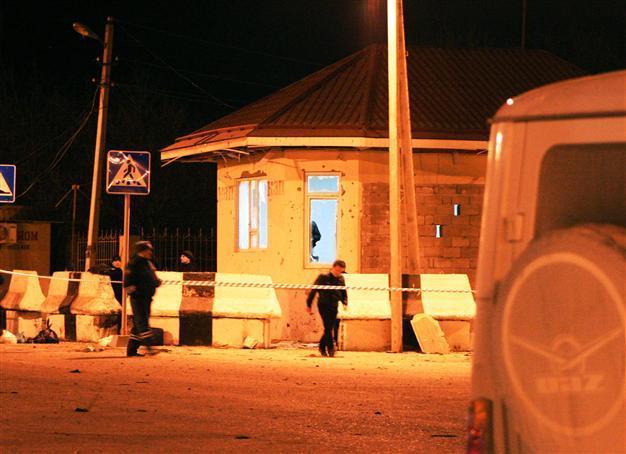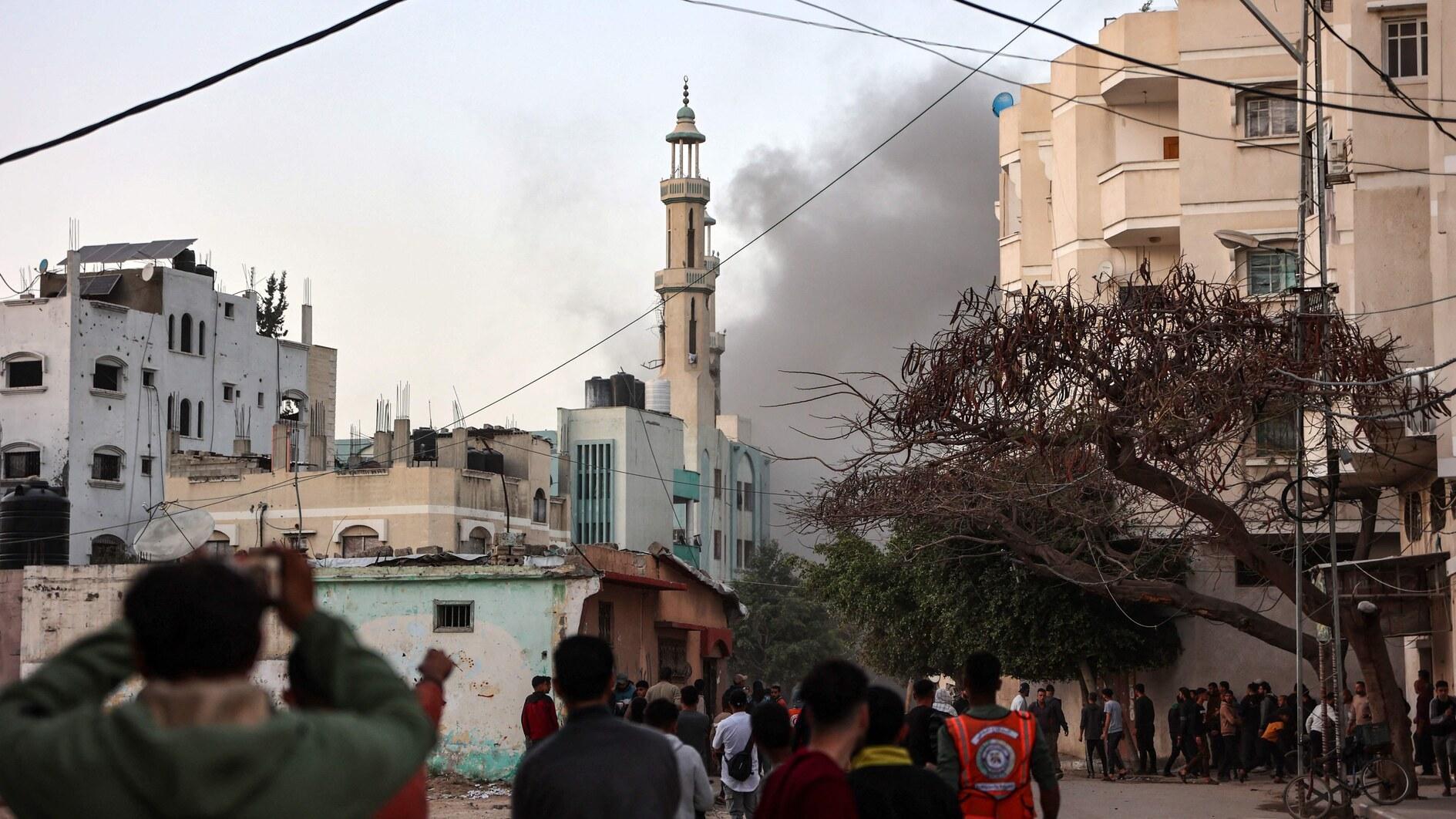'Widow bomber' kills five in Russia's Caucasus
MOSCOW - Agence France-Presse

In this photo taken Tuesday evening, March 6, 2012 photo, investigators pass a damaged police check point in the village of Karabudakhkent, 30 kilometers (18 miles) south of the provincial capital, Makhachkala, Russia. AP photo
A female suicide bomber who was the widow of a slain Islamist militant killed five police officers when she blew herself up at a checkpoint in Russia's volatile Caucasus region of Dagestan, officials said Wednesday.The attack on Tuesday night was the most deadly incident in a upsurge of violence in mainly Muslim Dagestan since Vladimir Putin was elected president, highlighting the problems he faces containing insurgents in Russia's south.
"A woman set off a bomb with two kilogrammes of TNT on her body at the checkpoint in Karabudakhent village," said a statement on the Dagestani police website.
The suicide bomber's severed head was found tens of metres (yards) from the blast on Tuesday night, ITAR-TASS news agency reported.
Investigators said relatives had identified her as the widow of a Dagestan rebel leader who was killed in a police operation against militants last month.
"She was Aminat Ibrahimova, the widow of a leader of a bandit group from (the town of) Kaspiysk, the former interior ministry official Zaur Zagirov" an unnamed police source told ITAR-TASS.
The five victims were low-ranking police officers aged 22 to 34, the ministry said. Two more officers were hospitalised.
The regional interior ministry blamed the recent violence on what it described as an Islamic militant "plague".
"Using Islam as a cover, they are doing evil on the territory of Dagestan," the ministry said on its website.
Russian officials have long been concerned by the activities of the widows of slain rebels and several attacks in Moscow in the last decade have been blamed on so called "Black Widows" who came to the capital.
A police officer and a local resident were also shot dead by unidentified gunmen in a raid Tuesday evening on a police station in Kaspiysk on Dagestan's Caspian Sea coast.
The violence came after after Putin triumphed in the Russian presidential polls, scoring especially highly in the Caucasus region where official results indicated that he polled over 90 percent.
Election day in Dagestan however was also marred by an attack on a polling station that killed three policemen.
A mostly Muslim region known for its ancient culture and tapestry of ethnic groups, Dagestan is fighting an insurgency by militants seeking to establish an Islamic state across the Russian Caucasus.
The region experiences frequent shootings and bombings that officials blame on local criminals and Islamists with links to neighbouring Chechnya.
"A radical Islamic underground is operating in Dagestan, which for a long time has used suicide bombers to carry out terror attacks. In the Moscow metro (attack in 2010), suicide bombers from Dagestan also blew themselves up," Alexander Cherkasov of the Russian rights group Memorial told AFP.
Russia has been trying to contain violence along its restless southern periphery since concluding the second of two post-Soviet wars in Chechnya a decade ago.
Putin won prominence during his time as prime minister under President Boris Yeltsin in the late 1990s with his hard line on the Chechnya conflict, including his notorious promise to kill the rebels "even in the outhouse".
Analysts suggested that the authorities had been able to calm the situation in Chechnya somewhat in recent years by giving local strongman leader Ramzan Kadyrov free reign to rule with an iron fist, but had been unable to do the same in Dagestan.
"That's why a significant part of the terrorist underground has appeared in Dagestan," independent analyst Alexander Golts told AFP.
He added that "deep-seated corruption, unemployment and feelings of despair among young people" were helping to fuel militancy.
















